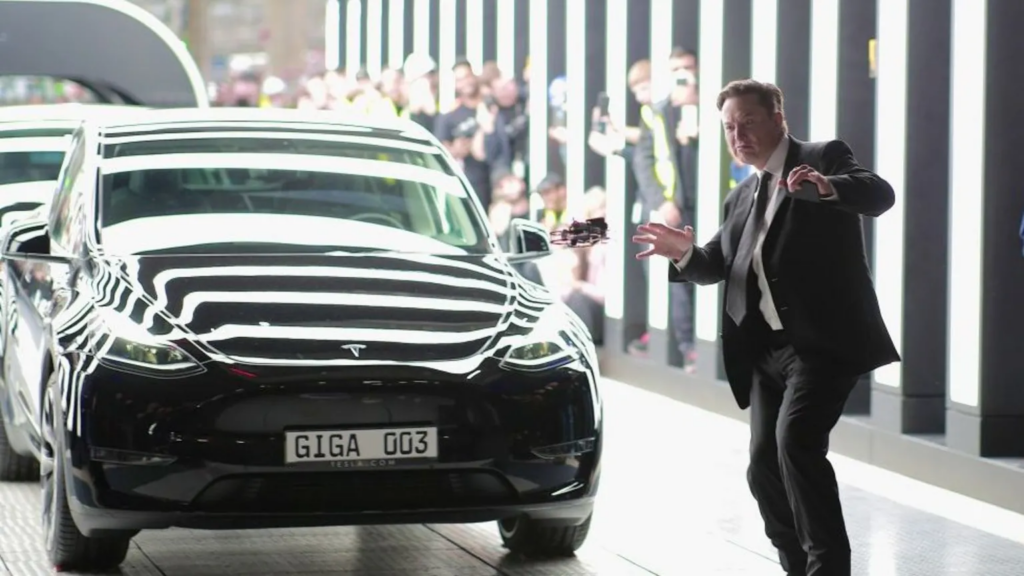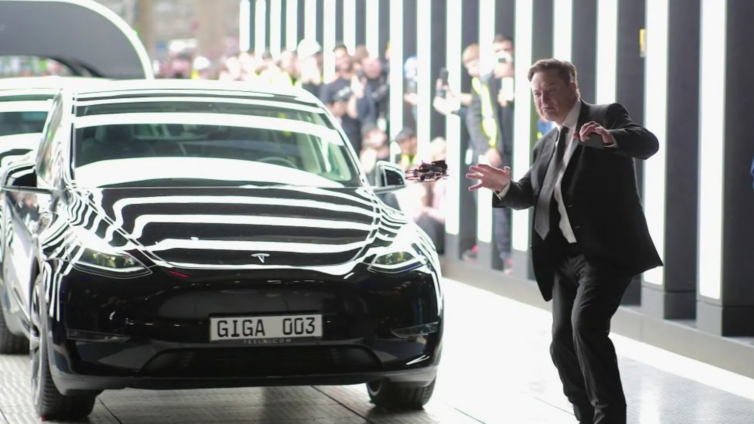Elon Musk is visiting Beijing to discuss enabling autonomous driving mode on Tesla cars in China, according to media reports.
Mr Musk wants to enable Full Self Driving (FSD) in China and transfer data collected in the country abroad to train its algorithms.
FSD is available in countries including the US but not in China.
The news came after a US report tied Tesla's autonomous driving modes to at least 13 crashes, involving one death.
China is Tesla's second-biggest market. Other carmakers such as Xpeng - headquartered in Guangzhou - have been attempting to compete with Tesla by rolling out similar self-driving functions in their cars.
The electric carmaker has taken previously taken steps to reassure Chinese authorities about the rollout of FSD in the country, including establishing a data centre in Shanghai to process data about Chinese consumers in accordance with local laws.
The trip comes days after the US's National Highway Traffic Safety Administration (NHTSA) said it was investigating whether a recall successfully addressed safety concerns relating to Tesla's driver assistance system.

The NHTSA said that despite requirements that drivers maintain focus on the road and be prepared to take control at a moment's notice when autonomous driving was enabled, drivers involved in the crashes "were not sufficiently engaged". The regulator's analysis was conducted before a recall Tesla said would fix the issue.
Tesla's software is supposed to make sure that drivers are paying attention and that the feature is only in use in appropriate conditions, such as driving on highways.
Mr Musk has promised that Teslas will be able to act as autonomous "robotaxis" for years. In 2015, he said Teslas would achieve "full autonomy" by 2018. And in 2019, he said the company would have robotaxis operating by the following year.
This month, the Tesla CEO said he would reveal the company's robotaxi in August.
Critics accuse Mr Musk of consistently hyping up the prospects of full autonomous driving to prop up the company's share price, which has fallen on the back of challenges including falling demand for electric vehicles worldwide and competition from cheaper Chinese manufacturers. Mr Musk denies the accusations.
The carmarker's profits fell sharply in the first three months of the year to $1.13bn (£910m), compared with $2.51bn in 2023. Its stock has collapsed by 43% this year.
Latest Stories
-
EPA says lead-based paints are dangerous to health, calls for safer alternatives
11 minutes -
Queenmother calls on President-elect Mahama to appoint more women in his government
2 hours -
Atletico Madrid beat Barcelona to go top of La Liga
2 hours -
Usyk breaks Fury’s heart with points win in rematch
3 hours -
Ghana-Russia Centre to run Russian language courses in Ghana
8 hours -
The Hidden Costs of Hunger: How food insecurity undermines mental and physical health in the U.S.
9 hours -
18plus4NDC marks 3rd anniversary with victory celebration in Accra
11 hours -
CREMA workshop highlights collaborative efforts to sustain Akata Lagoon
11 hours -
2024/25 Ghana League: Heart of Lions remain top with win over Basake Holy Stars
13 hours -
Black Queens: Nora Hauptle shares cryptic WAFCON preparation message amid future uncertainty
13 hours -
Re-declaration of parliamentary results affront to our democracy – Joyce Bawah
13 hours -
GPL 2024/25: Vision FC score late to deny Young Apostles third home win
13 hours -
Enhancing community initiatives for coastal resilience: Insights from Keta Lagoon Complex Ramsar Site Workshop
13 hours -
Family Health University College earns a Presidential Charter
14 hours -
GPL 2024/25: Bibiani GoldStars beat Nsoatreman to keep title race alive
14 hours

